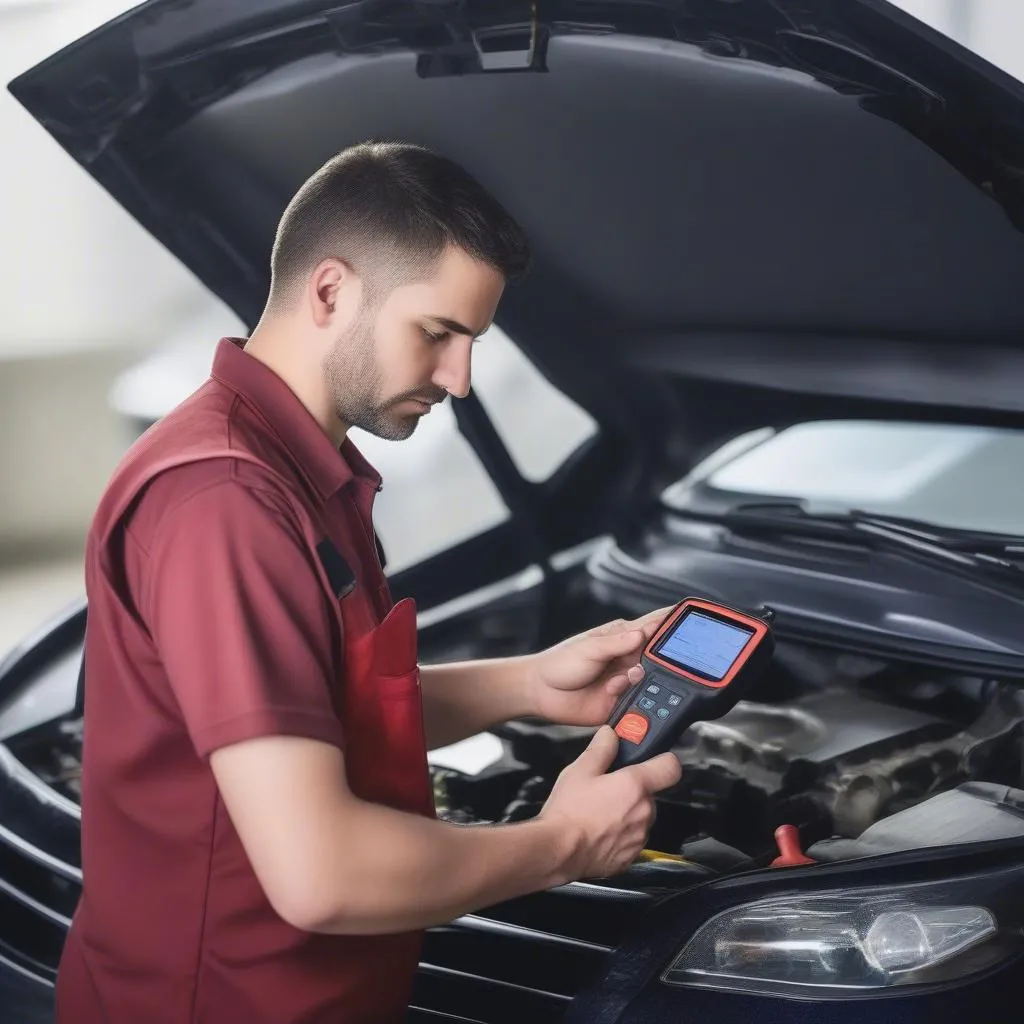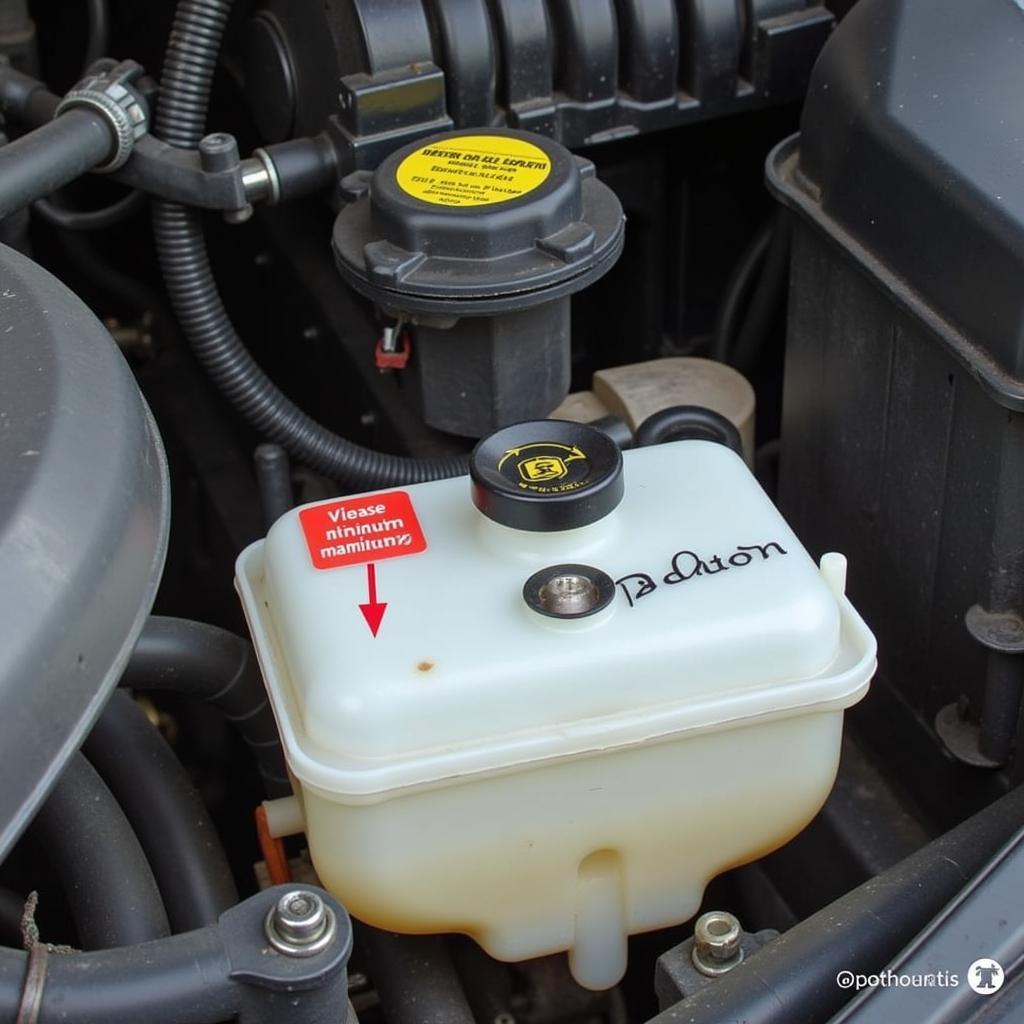The dreaded BMW E30 brake light warning can be a frustrating experience. This guide will walk you through the common causes of a BMW E30 brake light warning, offer troubleshooting steps, and provide solutions to get your classic BMW back on the road safely.
Check your brake fluid level. This is the most common cause of the BMW E30 brake light warning. If the fluid is low, top it off with the correct DOT specification. A leak in the brake system can also cause low fluid levels, so be sure to inspect for any signs of leakage. You can find more information at bmw e30 brake warning light.
Understanding the BMW E30 Brake Warning System
The brake warning light in your E30 is designed to alert you to potential issues with your braking system. While it can sometimes be triggered by minor issues, it should never be ignored. Understanding the different types of warnings and their potential causes is the first step in addressing the problem.
Common Causes of the Brake Light Warning
The BMW E30 brake warning system is designed to be comprehensive, covering several crucial aspects of brake health. The warning light can be triggered by a number of issues, including low brake fluid, worn brake pads, issues with the parking brake, and problems with the ABS system (if equipped).
- Low brake fluid: This is often the most common culprit.
- Worn brake pads: Your E30 is equipped with brake pad wear sensors.
- Parking brake engaged: A simple oversight, but the warning light will illuminate if the parking brake is not fully released.
- ABS sensor issues: If your E30 is equipped with ABS, a faulty sensor can trigger the warning light.
Troubleshooting the Brake Light Warning
Identifying the exact cause of the BMW E30 brake light warning requires a systematic approach. Here are some steps to follow:
- Check the brake fluid level.
- Inspect the brake pads for wear.
- Check the parking brake.
- Inspect brake lines and hoses for leaks.
- Check the brake warning light switch.
If you are still experiencing issues with your brake warning light after checking the above, you may need to consult a professional mechanic. For more information about the brake warning light specifically, check out this resource: bmw e30 brake warning light in overhead pannel.
Diagnosing ABS Issues
If your E30 is equipped with ABS, diagnosing issues with the system can be more complex and often requires specialized diagnostic tools. You might need to check this resource for resetting your brake pad warning light: e30 brake pad warning light reset.
Solutions and Repairs
Once you have identified the cause of the BMW E30 brake light warning, you can begin the repair process. Some repairs, like topping off brake fluid or replacing brake pads, can be done by DIY enthusiasts. However, more complex repairs, like fixing ABS issues, are best left to qualified mechanics. For more insights on BMW front brake pad warning lights, see: bmw front brake pad warning light.
Importance of Regular Brake Maintenance
Regular brake maintenance is crucial for the safety and longevity of your BMW E30. This includes regular inspections of brake pads, rotors, calipers, brake lines, and fluid levels. Sticking to a regular maintenance schedule can help prevent more serious and costly repairs down the road. More information on the 1990 BMW E30 brake warning can be found here: 1990 bmw e30 brake warning.
Conclusion
The BMW E30 brake light warning is a crucial safety feature that should never be ignored. By understanding the potential causes, following troubleshooting steps, and performing the necessary repairs, you can keep your E30 braking safely and reliably for years to come. Addressing the bmw e30 brake light warning promptly is crucial for maintaining safe driving conditions.
FAQ
-
What is the most common cause of the BMW E30 brake light warning? Low brake fluid is typically the most frequent cause.
-
Can I drive my E30 with the brake light on? It’s highly discouraged. It indicates a potential problem that needs immediate attention.
-
How often should I check my brake fluid? Check your brake fluid at least every month.
-
How often should I replace my brake pads? Brake pad replacement depends on driving habits but generally occurs between 30,000 and 70,000 miles.
-
What should I do if the brake light stays on after replacing the brake pads? Check the brake pad wear sensors and ensure they are properly connected.
-
How can I tell if my brake rotors need to be replaced? Look for signs of warping, excessive wear, or deep grooves.
-
Is it expensive to fix ABS issues in a BMW E30? The cost can vary depending on the specific problem.


